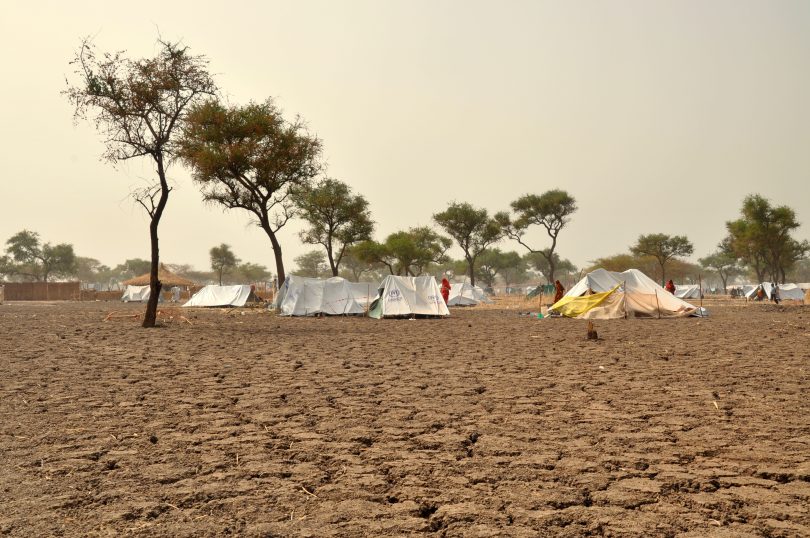 Larry Temkin is a distinguished professor of philosophy at Rutgers University in the United States. He has made major contributions to political philosophy and the study of ethics. For years he thought the moral case for donating to aid NGOs was impeccable. Now he has his doubts.
Larry Temkin is a distinguished professor of philosophy at Rutgers University in the United States. He has made major contributions to political philosophy and the study of ethics. For years he thought the moral case for donating to aid NGOs was impeccable. Now he has his doubts.
These doubts began during conversations with the economist Angus Deaton. Donating to NGOs that deliver development assistance might be morally desirable if it helps, but what if it doesn’t actually help – what if it causes harm? These are the questions that haunt Temkin’s latest book, Being Good in a World of Need.
The philosophy in the book is interesting, but Temkin’s dilemma ultimately hinges on a practical question: is aid given by NGOs any good?
To see why such a question might torment a philosopher, let’s imagine a conversation between Peter, Larry, Will and Angus (names borrowed from Peter Singer, Larry Temkin and William MacAskill, three philosophers who have weighed into these debates, and Angus Deaton).
Peter (earnestly): Would you rescue a drowning child from a pond if it came at little cost to you? Surely the answer is yes. In which case why don’t you donate money to aid NGOs? Save a child in a pond, save a child with a donation. Morally, it’s the same thing.
Larry (sounding worried): I’m not sure that philosophically it’s quite the same, yet I still agree, if the aid works, we ought to donate. But the trouble is, maybe aid doesn’t actually help. I’ve heard some awful examples of aid failing.
Will (breezily): Don’t worry Larry. Not all aid is created equal. If you study the efficacy of different types of aid using scientific methods like randomised control trials (RCTs), you can find the best forms of assistance and donate to the best NGOs. This is the approach of Effective Altruists.
Angus (pounds the table): Nonsense! RCTs might tell you what works in one time and place, but the findings aren’t generalisable. Worse still, aid reduces the need for governments to collect taxes. This makes them less responsive, and worse at governing. Good governance is central to development. As a result, aid ultimately leaves people worse off.
That’s the simplified version at least. (Temkin considers other arguments against aid too; I’ve focused on the central and most persuasive one.) The issue is clear. The need for aid is real. We ought to help. But perhaps we can’t?
Temkin goes to great lengths in the book to consider this possibility. It’s an imperfect effort. There are conceptual problems – he conflates NGO work with government aid in his discussions of aid effectiveness too often, for example. There are problems with evidence as well – he dismisses aid-growth regressions (not necessarily a terrible decision) but is happy to draw on polemics. Nevertheless, the book is a considered attempt from a systematic thinker who genuinely wants to resolve his doubts.
The end result is that – even though he finds himself at odds with the recommendations of people like Peter Singer and the Effective Altruists – Temkin never abandons his belief that we should help those in need.
He also doesn’t conclude it’s morally wrong to donate to development NGOs. However, he no longer believes we can simply assume that NGO projects help. He also believes that there is a reasonably high risk that NGO aid to aid-dependent countries (countries where total aid is large compared to the size of their economies) does more harm than good. (These countries are typically the poorest and worst governed too, or otherwise very small states.)
Reflecting this, at the end of the book he lists alternatives to donating to NGOs working in aid-dependent countries – better ways of helping those in need. We could, he thinks, donate more to NGOs that focus on helping people in wealthier, less aid-dependent countries (Indonesia yes; Liberia no). We should donate to organisations helping poor people in our own countries. We should reform global trade. We should strengthen the international rule of law. We should promote migration from poorer countries.
Bizarrely, pressuring our governments on climate change is missing from his list. And if Temkin wants more doubts, I could find him economists who disagree with his views on trade and migration. Also, while I support an international rules based order, I’m unsure which NGOs I could donate to that are successfully promoting it. Yet he is right to believe we can help people in need in many different ways.
But is Temkin really right to suggest that we should cease giving to NGOs that work in the world’s neediest, most aid-dependent countries? Is he right to believe the chances of success are too low and the risks of negative consequences too high for this to be morally desirable?
The answer to these questions all depends on two claims: that NGO aid projects are not particularly likely to help; and that the work of NGOs in poor aid-dependent countries leads to significantly worse governance and, through this, worse overall development outcomes.
Are these claims correct? That will be the subject of my next blog post.
This is the first blog in a two-part review.
Disclosure
This review was undertaken with the support of the Bill & Melinda Gates Foundation. The views are those of the author only.



This is such an important topic that doesn’t attract enough attention and airtime. Thank you for keeping this on the radar.
What an enjoyable blog post to read – examining some important questions!
Thanks Annabel!